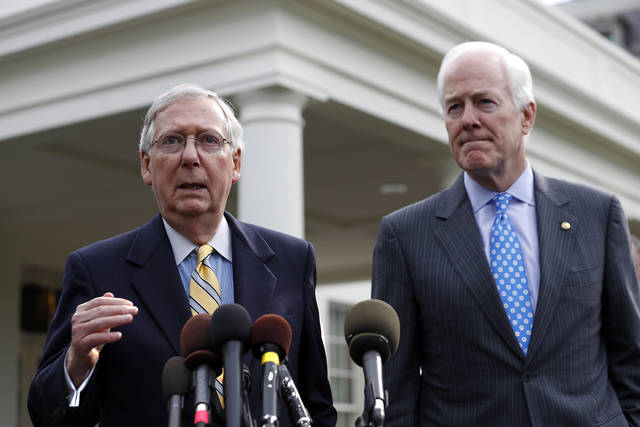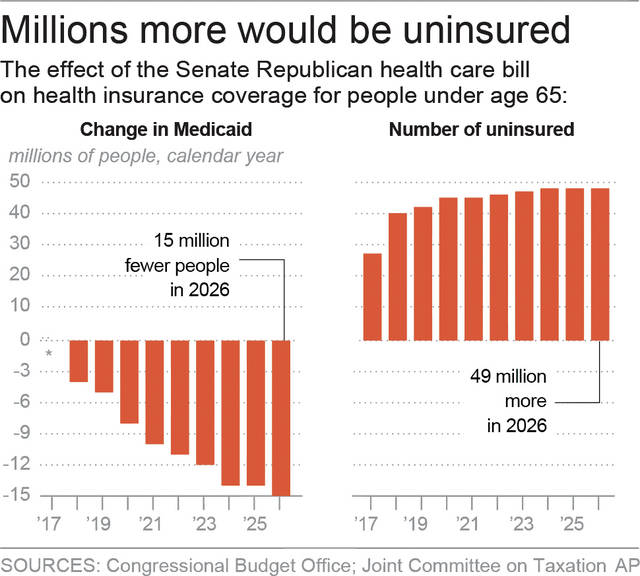HONOLULU (AP) — Senate GOP leaders abruptly shelved their proposed health care overhaul Tuesday, asserting they can still salvage it but raising new doubts whether President Donald Trump and the Republicans will ever deliver on their promises to repeal and
HONOLULU (AP) — Senate GOP leaders abruptly shelved their proposed health care overhaul Tuesday, asserting they can still salvage it but raising new doubts whether President Donald Trump and the Republicans will ever deliver on their promises to repeal and replace Obamacare.
Republican leader Mitch McConnell announced a delay for any voting while at a closed-door senators’ lunch also attended by Vice President Mike Pence.
The approval of the Senate’s health care plan — in its current form — would force a $2 billion reduction in Hawaii’s Medicaid program during the next 10 years, according to the state’s program administrator.
A report issued by the Congressional Budget Office on Monday shows the plan, which significantly reduces the federal government’s contributions into the Medicaid program, could cause an additional 22 million Americans to become uninsured if the measure were to pass.
The impact on Hawaii would be substantial, state Medicaid officials said.
“Well, there’s about 350,000 people on Medicaid currently,” said Judy Mohr Peterson, Hawaii’s Med-QUEST Division Administrator. “That’s about 1 in 4 residents in our state, so that’s quite significant. A lot of those adults are piecing together various jobs in order to make a living, but they don’t have access to health insurance. So they rely on Medicaid.”
Faced with the prospect of losing billions of dollars, Peterson said there would only be so many ways administrators would be able to make ends meet.
“We only have three basic tools at our disposal in which to manage this level of a cut,” she said. “We can cut people off of services, which is something we don’t want to do. We can cut the benefits or the services. Or we could cut back on the reimbursements that we pay to providers. None of those are good options.”
The Senate health care bill, or the Better Care Reconciliation Act of 2017, is part of a broader plan that would cut the federal deficit by more than $300 billion.
Senate GOP leaders originally hoped to schedule a vote on the measure sometime before Friday, but it’s been opposed almost from the get-go. The bill was short of support heading toward a critical procedural vote Wednesday.
McConnell promised to revisit the legislation after Congress’ July 4 recess.
“It’s a big complicated subject, we’ve got a lot of discussions going on, and we’re still optimistic we’re going to get there,” McConnell told reporters after the lunch.
Later, he said a discussion between GOP senators and Trump on Wednesday afternoon at the White House was very helpful and “everybody around the table is interested in getting an outcome.”




